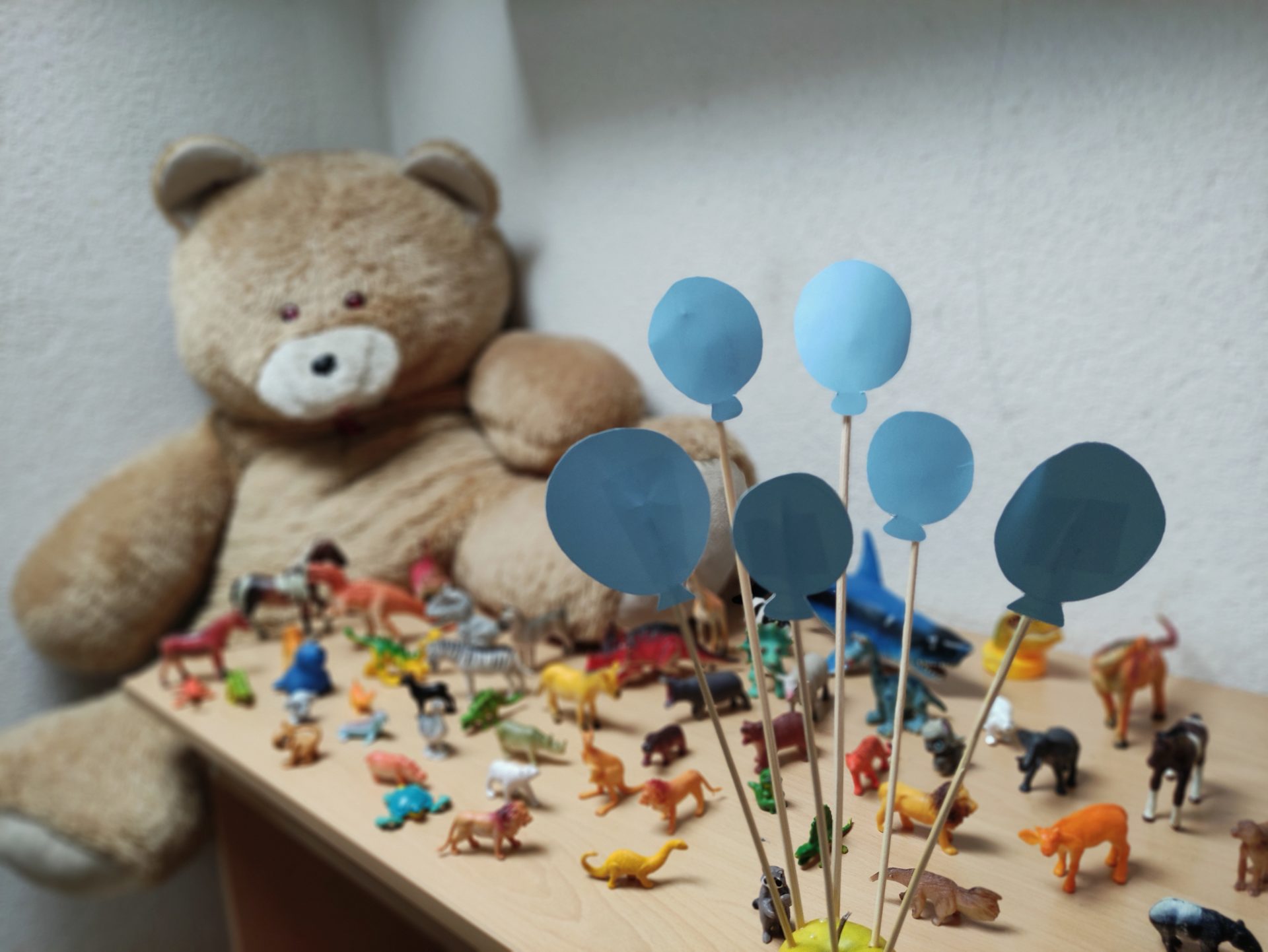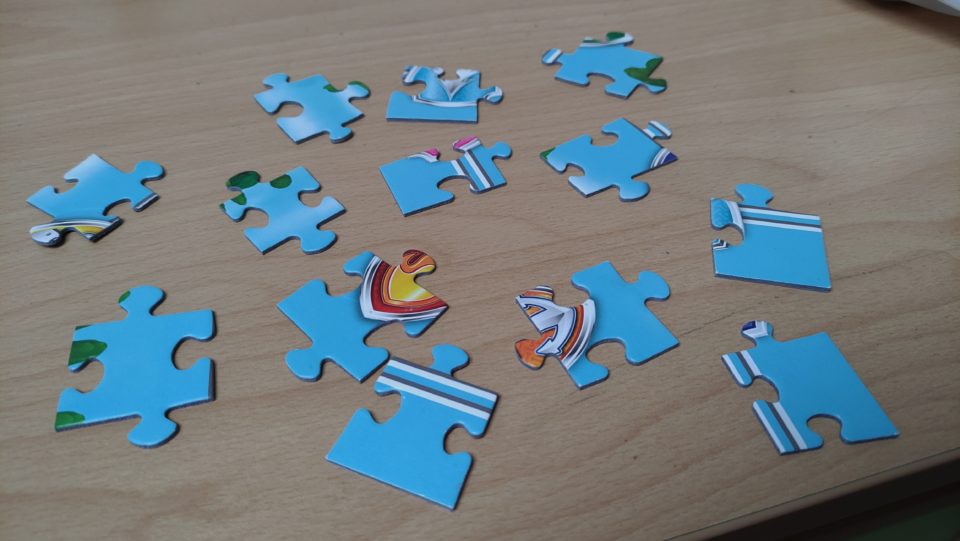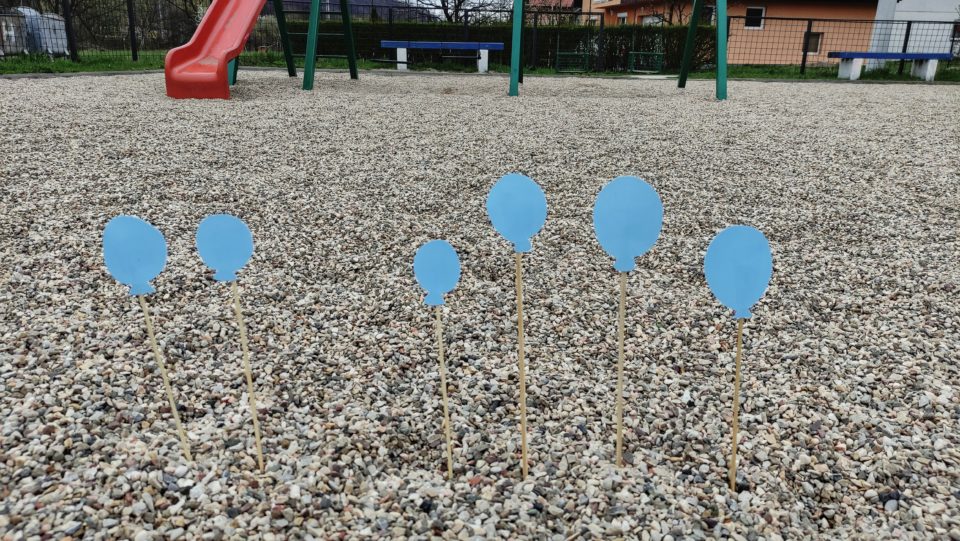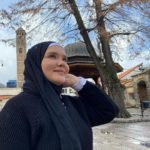
Raising awareness about autism and the autism spectrum is essential for promoting the inclusion of those affected by the disorder in everyday activities, combatting prejudice, and helping these people to overcome challenges. Autism is typically characterized by problems with communication and socialization, as well as repetitive actions.
“We have to watch for the signs carefully, that’s how we can help them,” says Merima Dramalija, Bachelor of Education and Rehabilitation. She explains that the first signs of autism can appear as early as a few months after birth, or later on in childhood.
Bekir, who is now nine years old, was diagnosed with autism when he was four. According to his mother Mirsada Isić, they “noticed that something was wrong because he wasn’t behaving like his peers.” With the help of experts and general information, they determined that Bekir has autism.

“We weren’t ready for that and it was a very difficult period,” Mirsada continues, speaking for herself as well as Bekir’s father Nedžad. They both agree that it was only after they accepted their child’s diagnosis that they fully appreciated him as a source of strength, hope, and happiness.
Autism is a neurodevelopmental disorder characterized by difficulties with communication and socialization, repetitive actions, and other behaviors and symptoms unique to this developmental disorder. Epidemiological research shows that four to five children with autism are born for every 10,000 live births. Additionally, as many as 15 out of 10,000 children are affected by various disorders that fall within the broader autism spectrum.
April 2nd has been designated as World Autism Awareness Day by the General Assembly of the United Nations. The puzzle piece logo symbolizes the need to connect the pieces in order to gain a better understanding of autism. To draw attention to the lack of public knowledge about this condition, blue balloons are released into the air. Such efforts to raise awareness about autism and related disorders are increasingly important given their prevalence in our society.
The Need for Early Intervention
Early intervention is crucial for children with developmental disabilities, as according to Merima Dramalija, it enhances their potential for progress. The earlier the diagnosis and intervention, the greater the likelihood of positive outcomes.
“When parents notice symptoms of autism, they should reach out to experts. They shouldn’t delay the diagnosis process, as this is harmful for the child as well as themselves. We all know that it’s a difficult thing to accept, but we still have to come to terms with it, for our sake and for the sake of our children,” she said.
There is no cure for autism, as the causes of this condition are still unknown. However, Dramalija emphasizes that children with autism spectrum disorders can benefit from special education and speech therapy, as well as other treatments provided by various specialists who can help these children reach their full potential.
“We use the treatments from speech therapists, psychologists, and physiotherapists. After every treatment, we see new successes,” said Dramalija. She explains that when parents notice signs of autism, professional help is needed to rule out other disorders related to speech and hearing before diagnosing autism.
After Bekir’s family came to accept his autism diagnosis, his father Nedžad says they were able to achieve visible progress. “We have two other children besides Bekir, and he is very close and communicates well with his brother and sister. I think that he has integrated very well into his environment, and that we have had a great deal of success,” said Nedžad.
Developing Social and Motor Skills
Mirsada notes that Bekir excels the most through games. “Whenever we ask him to do something, he’s happy to do it. Whether it’s fetching a glass, getting an apple, or throwing tissues in the trash, he’ll gladly do it,” Bekir’s mother explains.
According to Dramalija, children with autism spectrum disorders can have different learning difficulties. “I think the biggest problem is attention span. They often can’t concentrate on one activity. Communication is also a big challnege,” she stated.

The most common first signs of autism are difficulties with of demonstrative gestures and making eye contact, failure to respond to their name, speech problems, repetitive motor actions, and difficulty establishing social relationships and working on specific activities. While some children with autism do not have speech impediments, and although this is rare, autism should not be ruled out if the child speaks without impediments.
Bekir’s parents say that their biggest challenge was his inability to communicate, which made it difficult to express when he was hungry, in pain, or needed help.
“We had to adapt in every way and dedicate all our time to him to achieve communication, while also not neglecting our other two children,” recalls Nedžad.
Bekir’s parents were worried about how he would adjust to going to school and whether he would fit in with his peers and new environment.
“I can say that there was good cooperation with his teachers, especially one who really connected with him and understood him the most. With her help, Bekir started speaking fairly quickly and well, and he began to compose meaningful sentences. It is a huge relief,” Mirsada says.
According to Dramalija, parents and the environment should treat children with autism as normal children. “Children should go outside, go to the park, and play, in order to develop their motor and social skills. These children need to be included in different activities such as certain clubs, sports, and so on,” she added.
As she explains, children with autism should be included in all aspects of everyday life and their needs should be understood. “We must include them in our everyday life and society, not exclude them. People shouldn’t look down on children or their parents if they notice any unusual behaviors,” she continues.
Education is a very important factor in raising awareness about autism and other developmental disabilities. Lectures, workshops, and reading professional literature will contribute to this.
“The media should show more content that will educate our citizens not only about autism, but also about other developmental disabilities. Workshops should be organized in schools, for both students and teaching staff. I think that workshops should be held in every workplace, in every company, so that this environment becomes familiar with these difficulties,” said Dramalija.
Bekir’s mother advises parents not to give up and to be persistent. “Our boy is now nine years old and is slowly catching up with his peers. It takes a lot of effort and work, but don’t give up,” concluded Mirsada.






